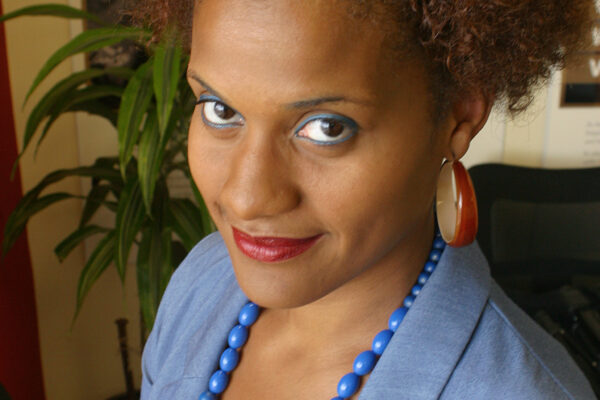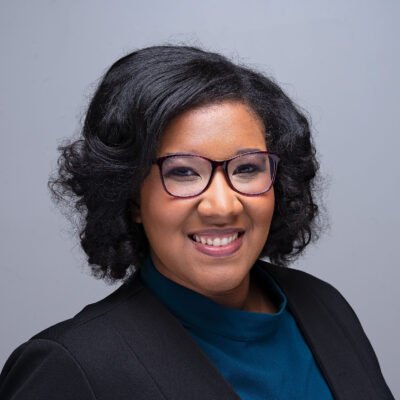This is one in a series of profiles marking the 60th anniversary of the ACLU of Kentucky’s founding. Each week through December 2015 we will highlight the story of one member, client, case, board or staff member that has been an integral part of our organization’s rich history.
Cherie Dawson-Edwards
"My advice is to always know where you’re privileged and understand that your lens may not be everyone’s lens. . . . In the application of protecting rights, we have to include people outside of our realm or our circle or our privilege so we can make sure we’re doing the appropriate work that needs to be done.”
“My first real introduction to the ACLU was when I was a grad student at the University of Louisville , working on my Master’s thesis on racial profiling,” Cherie Dawson-Edwards said. “The only literature that was out there was basically ACLU racial justice literature, and I spent a lot of hours sorting through [it].”
Later, when she was a PhD student, Dawson-Edwards got involved with the ACLU-KY’s felon voting rights campaign, and from there her involvement grew naturally. “I somehow got on the board,” she said jokingly. “And I’ve been involved ever since.” She now serves on the ACLU-KY board and as the state’s representative on the national board and is the organization's immediate past president.
Dawson-Edwards pointed to her work with the ACLU-KY’s annual Youth Rights Conference as some of her most meaningful. She served as a panelist, presenting on different topics in several conferences. “I’m impressed with the attendance and the dedication of some of our youth in our community and our state,” she said. “They care about civil rights and civil liberties issues, and I always got really good feedback and questions–and not always support questions. One of the things I value about the ACLU is you don’t have to agree with every stance.”
When she disagrees with the ACLU on an issue, Dawson-Edwards turns to the organization’s legal foundation. “I fall back on ‘What’s the law?’,” she said. “I think that keeps me grounded. . . . You can always go back to ‘What does the law say?’ and ‘What does that mean for today?’ because it might say something that was written a hundred years ago, and today it can mean something different.”
Dawson-Edwards explained another lesson she’s learned since getting involved with the ACLU-KY. “I realized that nobody in the ACLU believes in the [exact] same thing, and that’s okay!” she said happily. “We agree that there is a Bill of Rights that we have to protect. Do we agree necessarily how it needs to be protected? No. And that’s fine.”



